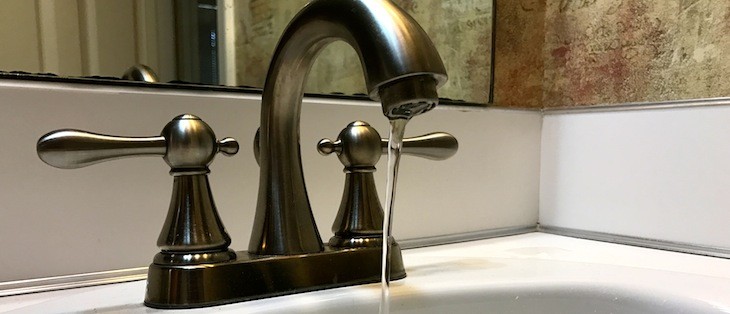$22 million water treatment plan fix presented to Fort Smith Board
by August 11, 2021 6:13 pm 1,281 views

A plan to replace part of the Massard Water Reclamation Facility (formerly the Massard Wastewater Treatment Plant) before it fails and severely impacts Fort Smith’s ability to treat water on the east side of the city could cost $22 million.
At the June 8 Fort Smith Board of Directors’ Study Session, representatives from Garver, a North Little Rock-based engineering consultant firm, and utility department staff provided a tour of the facility and presented findings of the evaluation of the facility.
The facility, constructed in 1966, has had very little in terms of upgrades or expansions over the past 55 years and many areas of the plant are in poor condition, meaning there is an imminent danger of collapse of some process that could put the plant out of operation, said Jerry Martin with Garver.
One of the major evaluation findings is the decline and possible failure of the facilities trickling filter treatment process. The concern with the trickling filters failing is reduced treatment capacity and resulting sanitary sewer overflows that would allow untreated wastewater to be discharged into the Arkansas River, Utility Director Lance McAvoy noted in a memo.
The trickling filter system, which consists of two trickling filters made up of a fixed bed of rocks over which wastewater flows downward and pollutants are removed by a layer of microbial slime growing on the rocks, was rated in poor condition because parts are no longer available; the distributor arms are leaking; and it is in danger of full collapse, the Garver report said.
On Tuesday (Aug. 10) McAvoy presented a plan to replace the trickling filters during a BOD study session. The replacement plan would include the installation of two aeration basins, an aeration blower, a solid storage tank and odor control. The design portion of the plan would ideally be done in 2022 and would have a price tag of $2 million. The construction would be in 2024-2026 and cost about $20 million, McAvoy said. The timeline could be moved up if State funding from American Recovery Plan is secured, he said.
It is unlikely that both the trickling filters will fail at the same time, McAvoy said. If there is a one-filter fail, it would reduce treatment from 20 million gallons of water per day (MGD) max to approximately 15 MGD. If there is a two-filter fail, it will reduce treatment from 20 MGD max to approximately 10 MGD.
Though there are some temporary solutions if the filters fail, including renting a package plant set-up to aid in treatment or using synthetic media emergency rebuild, they would also come with a costly price tag and the filtration system would still need to be replaced for reliable compliance, McAvoy said. Garver representatives said there is no way to know when the filtration system will fail.
“It could fail tonight or it could be another five to seven years,” they said.
The filtration system replacement is only one part of the new facility McAvoy presented to the board in June. The total cost of the new facility, which would incorporate components of the existing facility, would be approximately $230.64 million, McAvoy said.
Fort Smith Director Lavon Morton said the board needed hard numbers from the city before they could make decisions about proceeding with any projects. Those numbers must include exactly where the city stands on consent decree work, he said.
After years of failing to maintain water and sewer infrastructure to federal standards, the city entered into a federal consent decree with the United States Environmental Protection Agency (EPA) and U.S. Department of Justice in late 2014. The consent decree required the city to make an estimated $480 million worth of sewer upgrades over the course of 12 years.
“If we are going to make decisions as a board, we need to know the situation of how far we are and how much further we have to go in terms of time and dollars,” Morton said.
